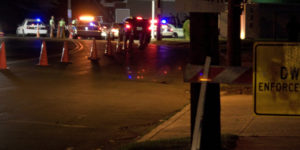
Experienced California DUI Attorney Michael A. Scafiddi Tells You What You Need to Know About DUI Checkpoints
As Americans, we are accustomed to being free from undue infringements on our constitutional rights. When we are driving, that means not being stopped by police unless they have reasonable suspicion to believe that a law has been broken. That being the case, clients often come to us asking how police are legally allowed to operate DUI checkpoints where people are stopped without an individualized suspicion that a crime has been committed.
The answer to that question is pretty simple. The crime of DUI has become such a pervasive problem that California enacted law allowing for “sobriety checkpoints” that allow law enforcement to randomly stop people and check whether they are sober. Thus, these checkpoints are legal in California.
What Happens at a Sobriety Checkpoint?
Usually, a stop at a sobriety checkpoint is not particularly intrusive. Take it seriously, and do not joke with or be aggressive towards the officers conducting the stop. After a brief interview to determine whether or not you are driving under the influence, you will usually be allowed to go on your way. If the officer feels that you may be intoxicated, you will be asked to pull over and will be subjected to a series of standard field sobriety tests. If you perform poorly, you will be arrested and be brought in for chemical test of your breath or blood, which is used to measure the BAC (or Blood Alcohol Concentration) of your blood.
Can a DUI Arrest at a Sobriety Checkpoint Be Challenged?
If you are charged with DUI as a result of a stop at a sobriety checkpoint, having an experienced DUI attorney is vital. Because DUI checkpoints are a departure from the normal protocol, there are specific rules regarding how these checkpoints must be conducted. If particular rules are not followed in how the checkpoint is set up and run, the evidence gathered at the stop can be suppressed, or thrown out, which can result in dismissal of your charges.
There are many standards that must be met for a sobriety checkpoint to be legal. For example, it must be minimally intrusive. Once a drivers’ sobriety is established, they must be released. It must also be located and administered in a way that is unbiased and neutral and should not target a specific class or group of people. It must be administered safely by supervising officers and must be operated at a time and for a duration that reflects good judgment. Importantly, the sobriety checkpoint has to be advertised reasonably. Because there is so much room for interpretation regarding each of these standards, having counsel with experience in this area is important if you want to have your case dismissed.
What Should You Do if You Are Arrested?
Given that the penalties for even a first time DUI include a loss of driving privileges, probation, and thousands of dollars in fines, you cannot take your chances and go it alone.
Free California DUI Defense Case Analysis
If you or a loved one is contacted or arrested for DUI at a sobriety checkpoint, it is a serious situation. Call an experienced California DUI attorney immediately. Attorney Michael Scafiddi has experience defending Californians from all types of criminal charges and is standing by to help you today.
You have rights. Do not let an arrest for DUI at a sobriety checkpoint ruin your career, your livelihood, or your family. Call Attorney Scafiddi at 1-909-381-1000 now to protect your rights.
Photo Courtesy: https://www.flickr.com/photos/versageek/
